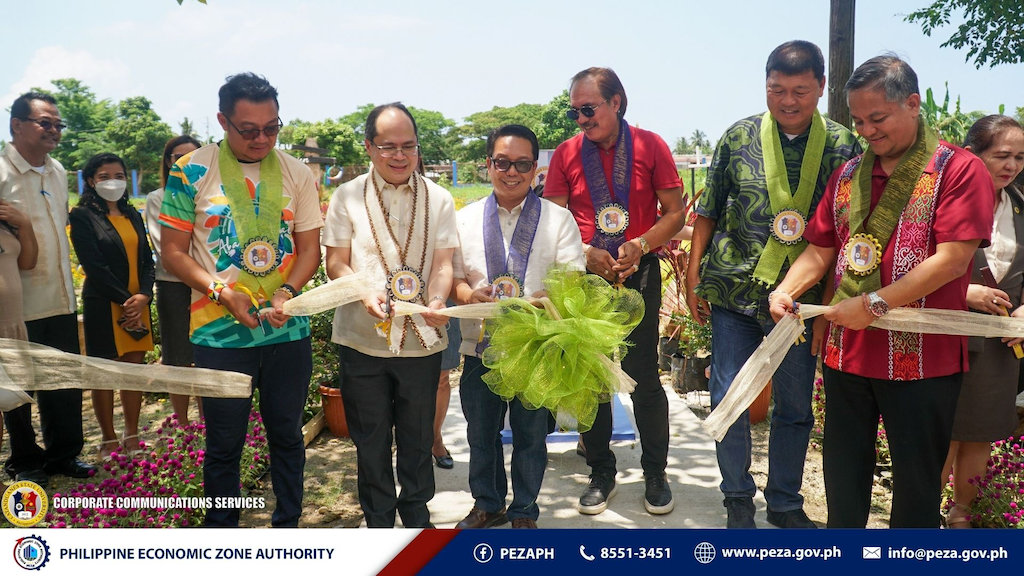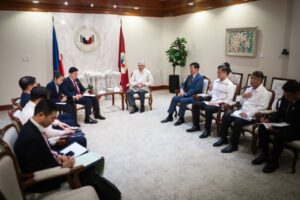
In just over a year, the dream of converting some idle lands of Catanduanes State University (CatSU) into a prime Knowledge, Innovation, Science and Technology (KIST) and Agro-Industrial Economic Zone is now a reality.
The first for these ecozone models to be approved by Philippine Economic Zone Authority (PEZA) in the Bicol region, the CatSU KIST Park and Agro-Industrial Processing Zone project was unveiled in a groundbreaking ceremony on May 25, 2023.
The project will potentially change the future of the whole Province of Catanduanes and benefit its 263,000 residents. It is also expected to bring in a total of PHP1.55 billion investments.
The Province of Catanduanes and CatSU, after all, have all the attributes that attract investments into their desired world-class and environment-friendly ecozones. Catanduanes is the biggest contributor to the growth of the abaca industry among the abaca-producing regions. The Philippines supplies 87.5% of the world’s requirement for abaca fibers, making the country the abaca capital of the world.
In the case of CatSU, it is ranked third among top performing schools in Region V. CatSU is also vying for green university ranking under the Green University Networks of the UNEP-UN environment program. CatSU boasts of its green installations such as the 250kw hybrid solar-battery power generation facility complete with smart control room, which supplies 30% of its campus energy needs; an agri-4.0 designed greenhouse adopting 4 technology systems into aquaponic, hydroponic, deep water culture and drip irrigation that can produce lettuce, celery, cherry tomato and capsicum in a controlled environment; and a 400 cum. capacity rain collector to augment its water supply. All these facilities likewise subscribe to the principles of climate proofing and circular economy.

According to PEZA Director General Tereso O. Panga, when economic zones are created, set up and properly managed, it spurs economic growth as in the case of the Bicol region which now hosts 8 ecozones and 11 export-oriented locator companies, mostly involved in the manufacturing and BPO industry. These companies employ almost 9,000 locals and have contributed about PHP17.898 billion investments to date, and have generated USD33.636 million exports for the first quarter of 2023.
As a fellow Bicolano and at the helm of PEZA, Director General Panga takes particular interest at the prospects of seeing: (1) foreign companies locating in the two CatSU ecozones; (2) job opportunities opening for graduates of CatSU so that they need not go to Manila; and (3) uplifting the economic life of the people of Catanduanes through the ancillary and downstream effects of foreign direct investment and capital inflow that will potentially be generated. “These are the same parameters that we adopt in PEZA as we promote the creation of more ecozones in rural and new growth areas to accelerate our countryside development,” he added.
Taking pride for Catanduanes and CatSU’s response to the call of President Ferdinand Marcos Jr. to establish ecozones to attract strategic investments, CatSU President Dr. Patrick Azanza mentioned, “We are one, if not the first ecozone during the time of PBBM, that will be inaugurated and will be established.”
The guidelines for the establishment of KIST Park were jointly formulated by the Department of Science and Technology (DOST) and PEZA.
The establishment of CatSU KIST Park and Agro-Industrial Processing Zone is assisted by Catanduanes Governor Joseph Cua, Congressman Eulogio Rodriguez, host LGUs of Virac and Panganiban, and other partner agencies that support the implementation of ecozone program at the regional/municipal levels. As these model ecozones conform to green, inclusive and sustainable development, CatSU is able to mobilize as well the cooperation of the farmers, NGOs and business chambers, scientists and researchers, and key players in the IT and agro-sector supply chains, thereby fostering synergies between academe and the industry.


